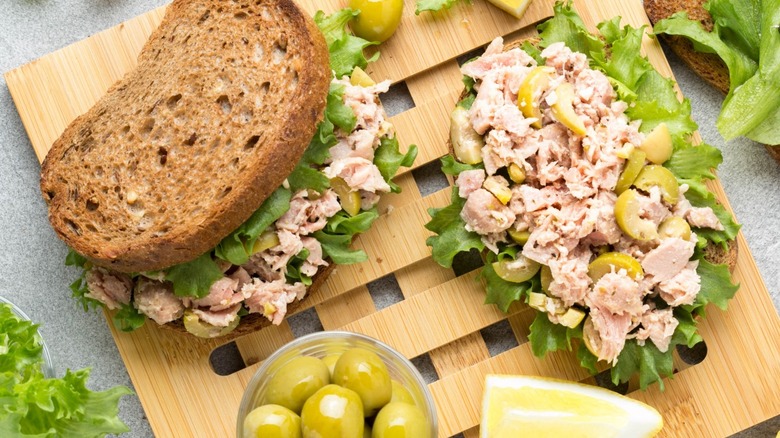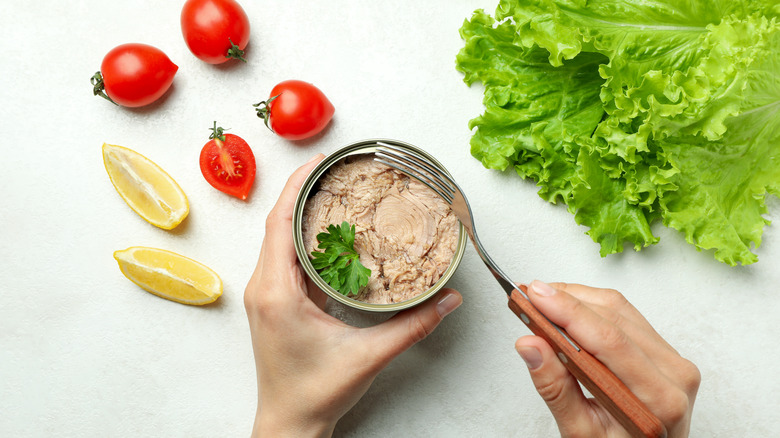The Best Kind Of Tuna For Making Tuna Salad
A can of tuna is just a can of tuna, right? Not so fast. According to health experts and tuna fans, that humble tin can contains varying levels of goodness. From chunk light to flaked, oil-packed or water, the options seem to be a matter of personal taste — but then you dive into the species of tuna, where it comes from, and the potentially harmful mercury levels. All these things add up when determining the best kind of tuna for your gotta-have tuna salad fix.
The most obvious consideration is the oil-versus-water debate. Calorie-conscious tuna lovers lean toward water-packed cans of tuna, which contain roughly three times less fat than oil packing, per Food Network. The water-based canning, which typically contains a salt-infused broth or brine, per Clean Plates, retains all the protein without the extra fat and calories. While the oil version provides moist, soft texture and added nutrition from olive or avocado oils, it can have a strong fish flavor and richness that conflicts with typical tuna salad ingredients.
Try both versions, but many chefs end up choosing the lighter, firmer water-based canned tunas.
Types of tuna for making great tuna fish salad
When stocking up on tuna, you'll typically be choosing from canned versions labeled as albacore or "chunk light." Both contain valuable nutrients, including protein, vitamin D, selenium, and omega-3 fatty acids, according to Seafood Health Facts. These important acids contribute to proper functioning of your heart, lungs, immune system, and blood vessels, notes WebMD.
Albacore is the only white-meat tuna authorized in the U.S. to be labeled as such, explains Seafood Health Facts. The Pacific Albacore fish reaches weights up to 80 pounds in open waters and harbors high levels of healthy omega-3 fats, pumping up the nutritional value of your tuna salad. It also contains higher levels of mercury, so keep that in mind when calculating safe daily mercury levels. Food Network notes the hearty texture and light flavor of albacore and suggests making tuna salad with a combination of albacore and chunk light.
Chunk light contains a mixture of lighter, milder, and generally less-expensive tuna varieties, typically skipjack and yellowfin. This creates a soft, flaky texture and distinct flavor that's ideal for tuna salad. NOAA Fisheries even reveals environmental benefits, noting the sustainable management and harvesting of wild-caught skipjack and yellowfin tuna. Since fishing gear used in harvesting these two species never touches the ocean floor, it has no negative effect on habitat.
We all have choices over what we put in our bodies. So create your own tuna salad recipe and get those omega-3's working on your behalf!

